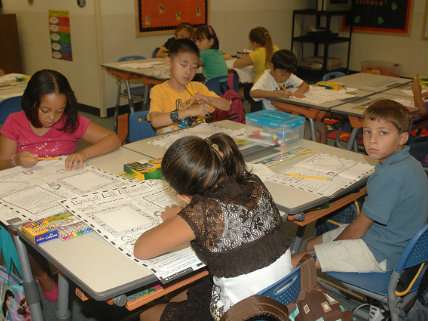GOP Wants Constitutional Amendment to Give Parents Control Over Kids' Education
The proposed amendment is a new addition to the Republican platform.


It will come as no surprise that Republicans favor giving parents more control over their children's education. But this year, the party took things to a new level by calling for a constitutional amendment to make sure they get their way.
The proposal comes from the 2016 GOP platform that was approved at the nominating convention on Monday. The relevant section reads:
Parents are a child's first and foremost educators, and have primary responsibility for the education of their children. Parents have a right to direct their children's education, care, and upbringing. We support a constitutional amendment to protect that right from interference by states, the federal government, or international bodies such as the United Nations.
The Republican Party has always been strongly in favor of keeping decision making as close to students as possible, favoring state and local policies over efforts based in Washington, D.C. Even in 2004 with No Child Left Behind in full swing, the GOP recognized education in its platform as "a state, local, and family responsibility, not a federal obligation."
The 2012 platform put even more focus on state and local control, calling on officials to make sure they're "providing broad education choices to parents and children at the State and local level."
But in the past, "state" and "local" have generally been lumped together. The new proposal to amend the Constitution departs from that trend by listing state governments alongside the U.S. Department of Education and the U.N. as forces that ought to be kept out of educational policy making.
As a whole, this year's GOP plank on K–12 education doesn't differ all that much from the past. Yet the fact that committee members felt strongly enough to call for formally altering the U.S. Constitution is noteworthy—especially coming from a party that as recently as four years ago seemed perfectly comfortable with having some state government involvement in public schools.
